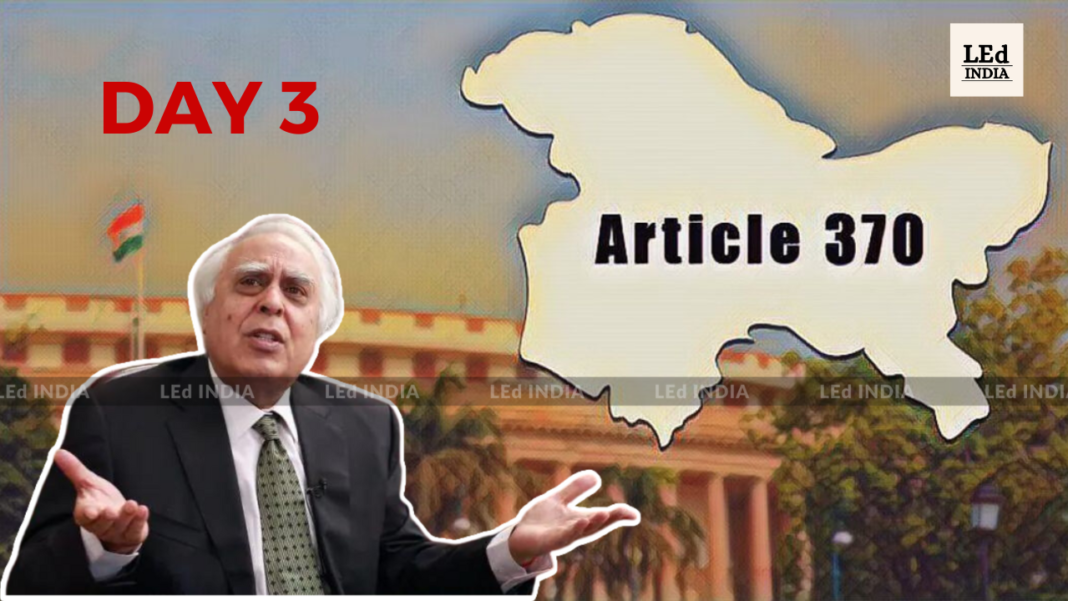Arguing before the Constitutional Bench of the Supreme Court, which hears a series of petitions challenging the dilution of Article 370 of the Indian Constitution, Senior Advocate Kapil Sibal on Tuesday challenged the constitutionality of the transformation of the State of Jammu and Kashmir (J&K) into a Union Territorial (UT).
Sibal represented National Assembly MP Mohammed Akbar Lone, who challenged presidential decrees removing J&K’s special status and the J&K Reorganization Act of 2019 that split and downgraded the state into states. Union territory of J&K and from Ladakh.
In his argument, Sibal emphasized that exercising “majoritarian power” to change the character of J&K would have profound implications for the constitutional values of federalism, separation of powers and democracy. He further argued that Article 3 of the Indian Constitution provides for the restructuring of states but does not mention the extinguishment of the state’s basic character by converting the entire state to UT. Sibal argued that this violated the principles of representative government and the basic principles of constitutional democracy. He said-
“The power under Article 3 does not extend to effacing a character of a State into a Union Territory. It is the interaction of the values of constitution of federalism, separation of powers, democracy that has to be taken.”
Sibal also questioned whether the power given to the Union government could be used to downgrade a state to UT without the necessary consultation of the people of that area. He expressed concern that exercising this power without proper consultation and consideration of the views of the people could undermine the democratic process and principles of representative governance. He argued-
“Can a state be downgraded to a Union Territory by Union on its own whim without consultation with the people? Those are the constitutional parameters to be applied on this momentous change bought by exercise of majoritarian power.”
Drawing attention to the historical misuse of Article 356,, Sibal also points out that its original purpose was not to facilitate such sweeping changes to a state’s constitutional status. He stressed the need to adhere to constitutional parameters and respect the will of the people, especially during important changes in the governance structure.
Furthermore, Sibal argues that the very essence of representative democracy is undermined when parliament becomes the sole spokesman for a region’s wishes, despite the constitutional requirement to consider the views of the state. Water. He pointed out that replacing the term “Union Territories” with “State” in the relevant constitutional provisions would make those provisions contrary to democratic norms.
The lead attorney also questioned the potential implications of the approach if extended to other states in the country. Such a precedent, he argued, could pave the way for the arbitrary conversion of other states into union territories, undermining the foundations of representative government.
“You can carve a UT out of a State but it does not allow the extinguishment of a state. You can carve out a UT if you have two or more states come together. But you can’t create two UTs in a state. Essentially, there are two aspects to that. The text of the constitution doesn’t allow you to do that and the fundamentals of constitutional democracy do not allow. Otherwise this power can be exercised any time,” he argued.
Sibal warned that if allowed, it could happen to any state. “If you can do it with one person, you can do it with all,” he said, adding that this could mean tomorrow a state like Madhya Pradesh or any state. Can be converted into union territory.




